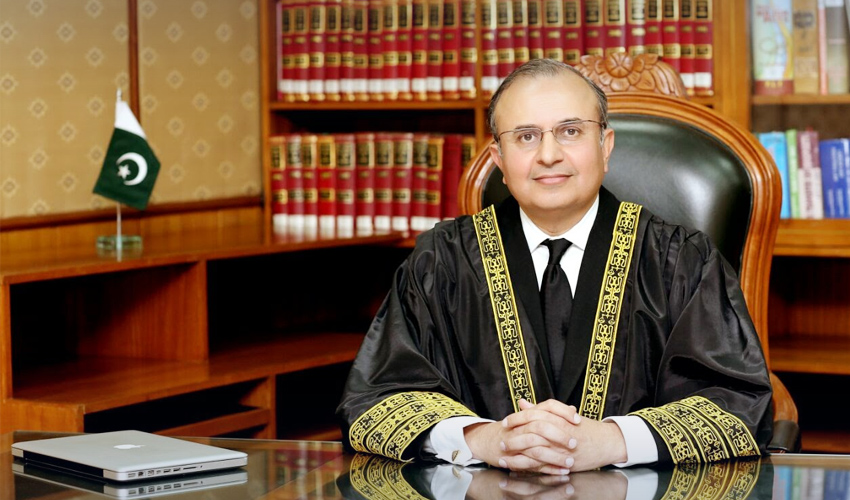Examining legislation by keeping interests of the legislators in mind is an insult to parliament and democracy. Judiciary can review legislation when it conflicts with fundamental rights.
This has been written by the Supreme Court’s Justice Mansoor Ali Shah in his 27-page dissenting note against the court’s majority verdict in the NAB amendments case.
On September 15, the Supreme Court had declared with a majority of 2-1 the NAB amendments of the previous government null and void on a petition of PTI Chairman Imran Khan. Justice Mansoor Ali Shah had dissented from the verdict.
Justice Shah began his dissenting note with a quote from Benjamin Cordozo, a former associate justice of the Supreme Court of the United States. Cordozo had said that the voice of the majority could be the victory of power. That voice may satisfy temporarily but be less significant for the future. A dissenter looks at the future, the note stated.
Justice Mansoor Ali Shah's 27-page dissenting #note!
— SAMAA TV (@SAMAATV) October 30, 2023
The note asserts, just like government officers, military officers & judges are also answerable under the #NAB amendments.
In 50 hearings, the question remains: Can they be held accountable? #SamaaTV #SC #NABAmendments pic.twitter.com/Rsy7nzWDKt
Antonin Scalia had rightly said that dissent enhances, rather than diminishing, the dignity of the court.
Justice Shah’s note further says that courts should be above chaos, independent of changing politics, and focus on the future of democracy. As opposed to political parties, courts do not need to garner popular support, it adds.
“Courts should decide according to the Constitution and law even if public sentiment is against them,” the note says.
The petitioner has not been able to explain how accountability of public office-holders under criminal laws is a fundamental right, the note states.
The stance of fundamental rights of the petitioner with regard to the NAB amendments is uncertain. If such position of the petitioner regarding fundamental rights is accepted, it will be difficult for parliament to enact legislation on any subject, the note adds.
All laws made by parliament are ultimately about fundamental rights in one way or another. The petitioner failed to prove that the NAB amendments were contrary to public interest, the note states.
It further states that judges and military officers can be held accountable under the NAB law. Just like government officers, military men and judges are also accountable under the NAB amendments.
For latest news and updates, watch Samaa TV live:



























